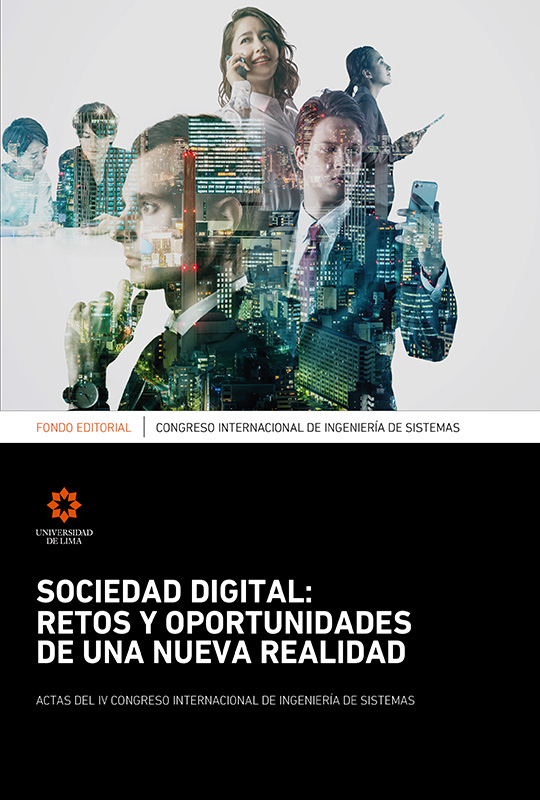Identificación de expertos como fuente de conocimiento en las organizaciones
DOI:
https://doi.org/10.26439/ciis2021.5579Palabras clave:
gestión del conocimiento, conocimiento experto, páginas amarillas de expertosResumen
El artículo contextualiza la identificación de expertos en las organizaciones que gestionan proyectos de envergaduras notables en su sector, por medio del mapeo de los coeficientes de competencias que se encuentran circunscritos, en primera instancia, a su trayectoria profesional y seguidamente al dominio avanzado sobre una temática en particular que haya tenido el reconocimiento por sus pares. A efectos de asociarlo a un entorno de demanda de conocimientos específicos, con profesionales altamente activos y motivados por aprender y solucionar problemas, que confluyen en una comunidad de aprendizaje sostenible. La investigación expuesta en el artículo hace referencia a una propuesta metodológica de
identificación de expertos basada en la literatura que involucra un conjunto de conceptos de la gestión del conocimiento en el marco de trabajo de las organizaciones, enfatizando especialmente en la identificación y valorización del conocimiento experto para mejorar la competitividad de los equipos de proyectos y facilitar la innovación en entornos altamente colaborativos. Tomando como referencia lo señalado, el estudio evaluó a un conjunto de profesionales directos y coordinadores de proyectos que laboran en diversas instituciones.
Descargas
Referencias
Alavi, M., y Leidner, D. E. (2001). Knowledge Management and Knowledge Management Systems: Conceptual Foundations and Research Issues. MIS Quarterly, 25(1), 107-136.
Almenara, J., y Osuna, J. (2013). La utilización del juicio de experto para la evaluación de TIC: el coeficiente de competencia experta. Universidad de Sevilla.
Andersen, A. (1999). El management en el siglo xxi. Granica.
Angulo, N. (2007). Ubicando el conocimiento experto: las páginas amarillas. Innovación Educativa, 7(40). https://www.redalyc.org/pdf/1794/179420967004.pdf
Archibold, W., y Escobar, A. (2015). Capital intelectual y gestión del conocimiento en las contralorías territoriales del departamento del atlántico. Revista Dimensión Empresarial, 13(1), 133-146. https://doi.org/10.15665/rde.v13i1.342
Arambarri, J. (2014). Metodología de evaluación y gestión del conocimiento dinámico por procesos utilizando como soporte TIC el entorno colaborativo de trabajo basado en el modelo de creación de conocimiento de Nonaka-Takeuchi. Caso de estudio en el área de Gestión de proyectos de I+D+i en institución avanzada en conocimiento [Tesis doctoral, Universidad de Córdova]. Biblioteca Universidad de Córdoba.
Bellinza, M., Guerrero-Barrera, N., Colon-Sirtori, S., y Ramírez-Mercado, W. (2011). Gestión del conocimiento: aproximaciones teóricas. Clío América, 5(10), 257-271. https://dialnet.unirioja.es/servlet/articulo?codigo=5114804
Cabero, J., y Llorente, M. (2013). La aplicación del juicio de experto como técnica de evaluación de las tecnologías de la información (TIC). Revista Eduweb, 7(2), 11-22.
Choo, C. (2016). The Inquiring Organization: How Organizations Acquire Knowledge and Seek Information. Oxford University Press.
Drucker, P. (2006). Innovation and Entrepreneurship. HarperCollins.
Flores, J., y Ochoa, S. (2016). Los modelos de gestión del conocimiento y su relación con la cultura organizacional: una revisión teórica. Universidad de Guadalajara.
Marin, J., y Zarate, E. (2008). Propuesta de un modelo integrador entre la gestión del conocimiento y el trabajo en equipo. Intangible Capital, 4(4), 255-280.
Mohajan, H. (2017). The Impact of Knowledge Management Models for the Development of Organizations. Journal of Environmental Treatment Techniques, 5(1), 12-33.
Nonaka, I., y Takeuchi, H. (1995). The Knowledge-Creating Company. Oxford University Press.
Prada, E. (2005), Las redes de conocimiento y las organizaciones. Revista Bibliotecas y Tecnologías de la Información, 2(4), 16-25.
Pérez, G. (2016). Gestión del conocimiento en el sector público chileno. En F. Ferreira (Org.), Experiencias Internacionales de Implementación de la Gestión del Conocimiento en el Sector Público (pp. 47-68). Instituto de Pesquisa Econômica Aplicada.
Phillip, M. (2017). How Organizations Use Collaboration to Create Knowledge [Tesis doctoral, University of Pennsylvania]. ProQuest. https://repository.upenn.edu/dissertations/AAI10255888
Probst, G., Raub, S., y Romhardt, K. (2001). Administre el conocimiento. Pearson Educación.
Robles, P., y Rojas, M. (2015). La validación por juicio de expertos: dos investigaciones cualitativas en lingüística aplicada. Revista Nebrija de Lingüística Aplicada, 18, 124-139. https://doi.org/10.26378/rnlael918259
Sveiby, K., Gripenberg, P., y Segercrantz, B. (2015). Challenging the Innovation Paradigm. Routledge. https://doi.org/10.4324/9780203120972.






